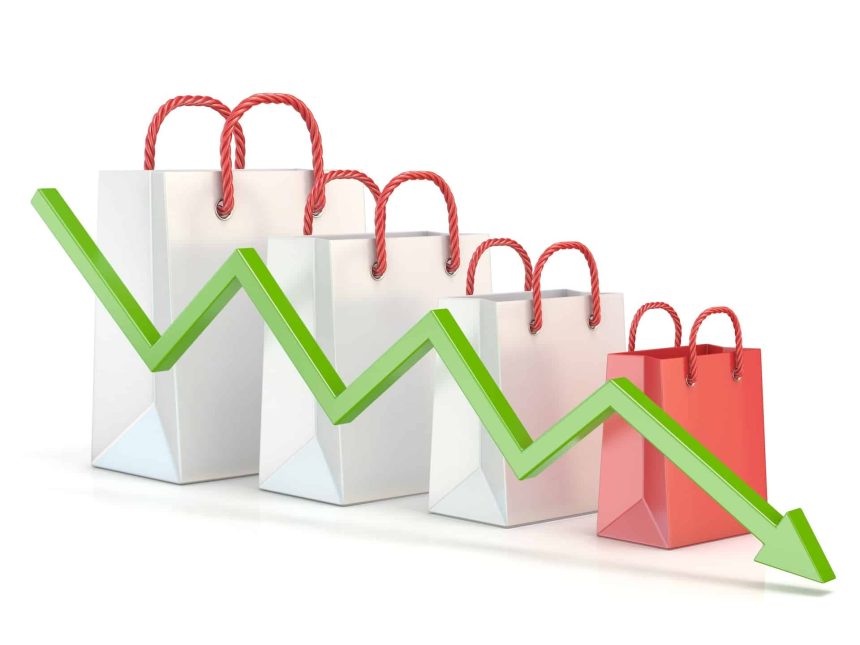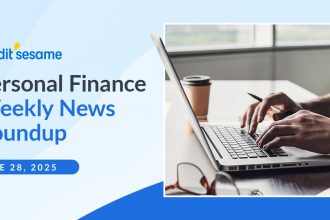Credit Sesame discusses reduced consumer spending and the possible impact on inflation and the economy.
After a brief lull during the pandemic, Americans made up for lost time. The past couple of years have seen consumers ignore high inflation, rising interest rates, and predictions of a recession with increased spending. This has helped the economy continue to grow. Recently, there have been signs that shoppers are finally tiring. This could make for a very different economy by the end of 2024.
Spending and borrowing have gone hand in hand
This past week, a regular Federal Reserve report known as the Beige Book noted that consumer spending has barely increased recently. Discretionary spending seems weak in several areas. This suggests that while consumers may be spending more to keep up with rising prices, they are less likely to make non-essential purchases.
Consumer restraint may not be bad news. Over the past few years, consumer spending has been accompanied by steady debt growth. Consumer debt balances are at an all-time high and have begun to take their toll. According to the Federal Reserve Bank of Philadelphia, late payment rates on credit cards have reached their highest levels in over a decade.
However, the average balance owed on credit cards dipped slightly in March 2024. According to a credit report by TransUnion, the average bank card balance declined by 0.8% last month. That decline is only slight and short-term—the average balance remains up over the past 12 months. But it may be a sign that consumers have reached the limit of their appetite for borrowing.
Implications reduced consumer spending for growth and inflation
Less consumer borrowing has both bad and good implications for the economy. On the negative side, continued growth has been largely dependent on borrowing. If consumers are no longer willing to take on more debt, it could mean that predictions of a recession may come true. At the very least, it’s likely to lead to slower growth in the months ahead.
The plus side of slower consumer borrowing may be that it might finally trip up inflation. After slowing late last year, consumer price increases have picked up again to start this year. The Fed’s Beige Book noted that retailers are having a harder time passing their price increases along to consumers. Perhaps that’s a sign that inflation will lose momentum.
Reining in debt is a healthy response
Regardless of the implications for the economy, for individual consumers, borrowing less is a healthy response under the circumstances:
- Debt balances are at a record high. Consumers owe more money than ever before. Every dollar that goes to payments on these debts is a dollar that’s not available for new spending. Even consumers who haven’t yet reached their credit limits may find it harder to take on more debt. Consumer debt growth has slowed recently, but it may take an actual decline in debt before buying power is fully restored.
- Interest rates remain elevated. Consumers don’t just owe more debt than ever; the cost of having debt has gotten much more expensive than it was a couple of years ago. Interest rates are generally up, and credit cards have led the way. The average credit card interest rate has increased by over 6% since 2020. That’s especially bad news when credit card debt has been the fastest-growing form of consumer debt.
- Banks are demanding higher credit standards. A side benefit to borrowing less is that lower debt balances should help credit scores. Consumers may find that they need higher scores to maintain the borrowing power they currently have. Banks have been tightening credit standards, so even if your credit score stays the same, you may find your interest rate rise, your credit limit cut, or new credit harder to get.
- An economic slowdown would make debt payments a bigger burden. Cutting back on borrowing is good preparation in case a recession finally hits. Debt payments are tough enough to keep up with now. Imagine what would happen if a large number of Americans lost their jobs.
Borrowing less in the months ahead may be the key to keeping up with payments. If this has the added benefit of bringing inflation under control, it may be worth a temporary slowdown in the economy.
If you enjoyed The consequences of reduced consumer spending in spring 2024 you may like,
Disclaimer: The article and information provided here is for informational purposes only and is not intended as a substitute for professional advice.
Read the full article here
















